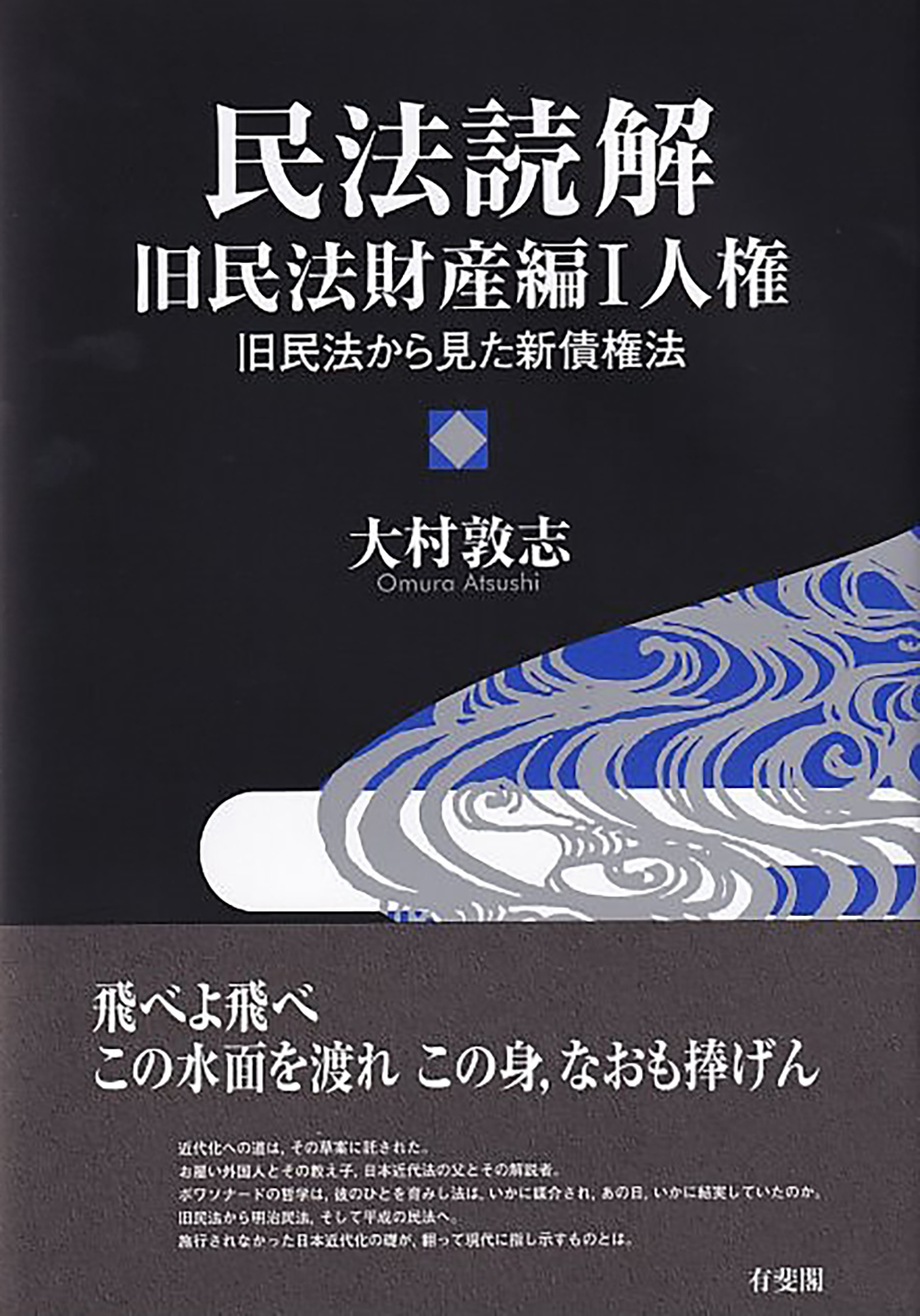
Title
Shiho no Gendaika (Modernization of Japanese Private Law)
Size
486 pages, A5 format, hardcover
Language
Japanese
Released
March, 2022
ISBN
978-4-641-13878-0
Published by
Yuhikaku Publishing
Book Info
See Book Availability at Library
Japanese Page
Japanese private law has been undergoing reform since the late 20th century. The author of this book, a professor of civil law, participated in the reforms of the civil code (law of obligations and contract law), bankruptcy law, laws governing non-profit organizations and the law of trust. This anthology comprises articles about these reform processes and the reformed laws.
.
This book focuses primarily on the reform of the Japanese civil code. It began in 1991 with the preparation for the modernization of the code’s language that was established in 1896. Subsequently, the modernization of its substance commenced. After long deliberations within the academic world and the appointment of the official government committee, the civil code was amended in 2017, and the amendment was enforced in 2020. In the early stages of this reform, several opposing viewpoints were presented, including conflicting perspectives regarding respecting tradition versus the importance of modernization, loyalty to inherent Japanese laws versus the necessity for harmonization with foreign trends, and between the theory and practice of law. However, as the discussion progressed, the opposition was replaced by cooperation aimed at achieving the best possible reform. In the first section of Chapter one, this development is described and analyzed. It contains an article addressing the reform of the French civil code (law of obligations and contract law) enacted in 2016, providing a comparative perspective. The second section discusses the consideration of some specific topics under the newly reformed civil code. The subjects include ‘Fault as a condition of damages for non-performance,’ ‘Substitution and addition of debtors,’ and ‘Compensation among three persons.’
Chapter two focuses on the bankruptcy law reforms of 2004. It contains four articles, especially on the effect of a party’s bankruptcy on the contract.
Chapter three focuses on the reform of the law governing non-profit organizations, which was implemented in 2006, and of the law of trust, which was almostly implemented in 2006 and is expected to be finalized in the near future. It discusses the background, process, and problems of these reforms.
Thus, the author describes and considers the process and products of the reforms as he participated in them. Therefore, it documents the reform of Japanese private law between the late 20th and the early 21st century, and the considerations of its participants who are civil law specialists. It may contribute to the future construction of reformed laws and their future reforms. Moreover, it may provide students with a dynamic image of the civil code and the role of academic theories in the real world.
(Written by NAKATA Hiroyasu, Emeritus Professor, Graduate Schools for Law and Politics / 2023)



 Find a book
Find a book


 eBook
eBook




